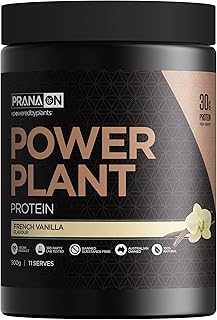Protein is a vital component for the body’s overall function, essential for cell maintenance, enzyme production, and immune system support. Even if you are not physically active, protein plays a crucial role in maintaining energy levels and overall health. Dr. Ridhima Khamesra, a Clinical Dietician, emphasizes the significance of protein in every aspect of bodily function, underscoring the importance of obtaining essential amino acids through diet.
A well-rounded vegetarian diet can provide the necessary protein intake, ensuring the body receives all essential amino acids. The Recommended Dietary Allowance suggests 0.8 grams of protein per kilogram of body weight, illustrating the importance of protein consumption for various groups such as athletes, pregnant women, and the elderly.
Chia seeds, a nutritional powerhouse, offer approximately 4 grams of protein per 2 tablespoons. Rich in omega-3 fatty acids and antioxidants, chia seeds support satiety and heart health, making them an excellent addition to vegetarian diets. Nuts and nut butters like almonds, walnuts, and peanuts provide 5 to 7 grams of protein per ounce, along with healthy fats and essential vitamins, supporting heart health and weight management.
Quinoa, a complete protein source, offers about 8 grams of protein per cooked cup and is gluten-free, making it a versatile option for vegetarians. Amaranth, with approximately 9 grams of protein per cooked cup, is rich in iron and magnesium, highlighting its high digestibility and nutrient density as an excellent grain alternative.
Tofu, derived from soybeans, provides about 10 grams of protein per 1/2 cup and is known for its cholesterol-lowering properties and heart health benefits. Green peas, often overlooked, offer 8 grams of protein per cooked cup and are packed with vitamins A, C, and K, supporting weight management and overall health.
Hemp seeds stand out as a complete protein source, providing 10 grams of protein per 3 tablespoons, along with omega-3 and omega-6 fatty acids essential for heart and brain health. Combining complementary proteins ensures a complete amino acid profile, allowing vegetarians to meet their protein needs deliciously and healthily.
Research and ancient farming practices have paved the way for these protein-rich vegetarian options, offering a diverse range of foods to support optimal health. By incorporating these high-protein sources into their diets, vegetarians can thrive and meet their nutritional requirements without compromising taste or variety.
📰 Related Articles
- Veterinarians Recommend Top Dry Dog Foods for Canine Health
- Top Vegan Protein Powders for Taste and Nutrition
- Top UFC Betting Sites in Australia Reviewed by Experts
- Soy Consumption: Experts Debunk Health Concerns and Highlight Benefits
- Pimple Patch Trends: Top Performers Revealed by Experts






